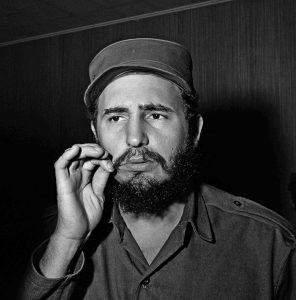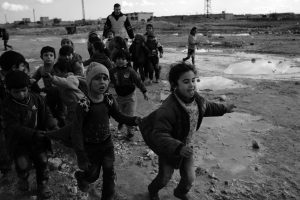Tommaso Nigra, Reporter
Cuban former president Fidel Castro dies
On Friday, Nov. 25, historic Cuban leader Fidel Castro died, age 90 in Havana, Cuba. Castro had been the head of the country since he led the Cuban revolution and overthrew the dictator Fulgencio Batista in 1959. He became prime minister of the Republic of Cuba in 1959 and president in 1976, retaining the charge until 2008, when his brother Raul Castro succeeded him.
In these decades of uncontested leadership, Castro secured a strong alliance with the Soviet Union and consequently increased opposition to the United States, which led to several assassination attempts against the Cuban leader, as well as several diplomatic crises like the Cuban Missile Crisis in 1962.
“Castro’s death is important symbolically because he represented the revolution, but he also represented conflict with the United States,” said social studies teacher Aaron Marsh. “He’s a highly controversial figure.”
Fidel Castro always defined himself as a Marxist-Communist, turning Cuba in a one-party socialist state. The contrast between his many goals achieved, such as excellent public education and healthcare reforms, and the actual conditions of freedom of the Cuban people, made him one of the most controversial leaders ever.
For this reason, his death has provoked opposite reactions among the Cubans. While hundreds of Cuban emigrants celebrated the news in the streets of Little Havana and Miami, Cuba proclaimed a nine-day national mourning period.
Airplane crash causes dozens of deaths in Colombia
On Nov. 28, an Avro RJ85 flying from Santa Cruz, Bolivia to Medellin, Colombia crashed in an area called Cerro del Gordo, situated near to the Colombian river Rionegro. According to the local authorities, 71 of the 77 people on board died.
The cause of the accident seemed to be a lack of fuel, since in the last communication before the crash, the pilot had warned that the plane was running low and asked for permission to land. The airline didn’t realize the seriousness of the situation and didn’t give the Avro RJ85 the priority for an emergency landing until it was too late.
On board, together with the other passengers and at least twenty journalists, was the Brazilian soccer team Chapecoense F.C. and its staff. The team, underdogs in the Brazilian soccer league, was flying to Medellin to play the first leg of the Copa Sudamericàna finals on Wednesday, Nov. 30, after a surprising run. Only three of the players survived, and the tragedy deeply shocked many soccer clubs, as well as the rest of the world.
Thousands escape from Aleppo
Starting on Nov. 15, the Syrian forces loyal to the president Bashar Al-Assad launched an offensive to the rebel-held parts of Aleppo, the second biggest city in the country. The government troops have already retaken most of the northern neighborhoods and are now advancing towards eastern Aleppo.
According to the United Nations, 16,000 people have been displaced and are in precarious condition. The Observatory of Human Rights declared that about 50,000 have fled from the rebel-held territories to either government-controlled areas or Kurdish districts.
In July 2012, the rebel forces took control of eastern Aleppo in an attempt to overthrow president Assad. The city has been devastated by the conflict. In particular, the incessant airstrikes launched on the eastern neighborhoods by the Russian-backed Assad’s army in the past four years have killed thousands of innocent civilians — at least 500 children — and forced many others to flee from the city.
The humanitarian crisis is raising concerns all over the world, and many are calling for a truce to guarantee aid to the civilians.
“The best thing to do [now] is to establish a ceasefire between the Syrian government [and] Russia and the Syrian rebels [and] the U.S.,” said senior Forest Easley.
Italian prime minister Matteo Renzi resigns
On Dec. 5, the Italian prime minister and Democratic Party leader, Matteo Renzi, announced his resignation following defeat in the crucial referendum on the constitutional reform proposed by his government. Sixty percent of voters decided against the controversial reform that was intended to change a good part of the political and elective system by directly modifying certain articles of the Italian constitution.
To support the reform, Renzi had declared his intention to resign in case the opposition won. This unusual move revealed itself as a double-edged sword, confirming the Italian people’s mistrust towards Renzi’s entire conduct (more than just the single reform bill). The uncertain political situation in Italy could now have repercussions on UE’s economy.
In the last decade, the lack of a strong majority party has led to constant instability in Italian politics with similar situations occurring in many other European countries as well. Social studies teacher Matt Tilden considers this a result of the parliamentary democracy system, the most common in Europe.
“My perception of the Italian government is that it sort of shows a lot of the negative sides of parliamentary democracies, like inherent instability of multi-party governments,” said Tilden.


